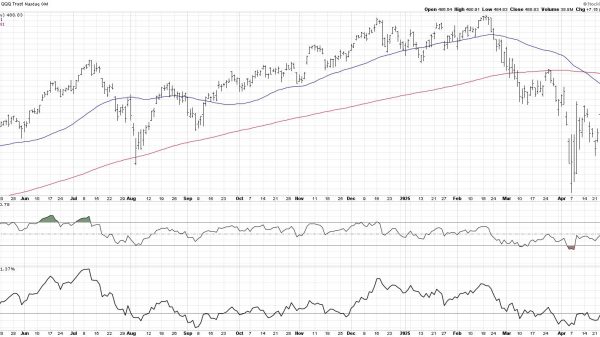David Boaz
It’s hard not to despair at the state of public policy discussion these days. Every day’s newspaper contains another bad idea from politicians, pundits, and wonks from across the political spectrum, from rent control to corporate subsidies to trillion‐dollar handouts to costly regulations to red vs. blue cultural war games. It could keep an entire institute busy analyzing, criticizing, and warning about looming policy errors. As bad as the current climate is, though, I was reminded this week that we’ve lived through worse policy enthusiasms.
In his recent book Freedom’s Furies: How Isabel Paterson, Rose Wilder Lane, and Ayn Rand Found Liberty in an Age of Darkness, Timothy Sandefur describes the intellectual climate that those “founding mothers of libertarianism” faced in the Hoover‐Roosevelt Depression years:
Between 1917 and 1919, agencies such as the War Industries Board and [Herbert] Hoover’s U.S. Food Administration appeared to vindicate Progressive beliefs in government planning. A decade later, many—including Hoover himself—pointed to that precedent, arguing that the Depression was analogous to a world war and should be dealt with in the same way.
That was the basis for the idea that General Electric’s president Gerard Swope proposed in September 1931. He recommended that the federal government create a system of industrial cartels under which all companies of more than 50 employees would be assigned to a trade association vested with authority to dictate the types and amounts of goods and services businesses could provide, and how much they could charge. This would prevent “destructive” competition, by giving companies the power to prohibit their competitors from reducing prices or introducing new or improved products, which would “stabilize” the economy and ensure full employment. “Industry is not primarily for profit but rather for service,” Swope declared. “One cannot loudly call for more stability in business and get it on a purely voluntary basis.” Although hardly the only such proposal—it mimicked the corporatism already being implemented in Italy and Germany—the Swope Plan gained the most attention and would later form the blueprint for the National Industrial Recovery Act. But at the time, Hoover labeled it “fascism” and rejected it as “merely a remaking of Mussolini’s ‘corporate state.’”
Many similar schemes were offered by prominent intellectuals, including historian Charles Beard, who proposed “A Five‐Year Plan for America” on the Soviet model, and New Republic editor George Soule, whose 1932 book A Planned Society proposed political control over the entire economy. These writers, said one of Soule’s colleagues, “were impatient for the coming of the Revolution; they talked of it, dreamed of it.” And they were not alone. That same year, novelist Theodore Dreiser published Tragic America, which he had originally planned to call A New Deal for America. It advocated the overthrow of capitalism and the replacement of the Constitution with a government that would control industry in the style of the Soviet Union, where he thought communism was “functioning admirably.”…
Dreiser probably changed his title because A New Deal had already been taken by economist Stuart Chase, whose book of that name also appeared in 1932. Chase—who considered it “a pity” that “the road” to socialist revolution in America was “temporarily closed”—looked forward to the day when the government would seize all industry and “solv[e] at a single stroke unemployment and inadequate standards of living.” It would do this, he said, by compelling all individuals to “work for the community.” The government should forbid high interest rates, stock market speculation, the manufacturing of “useless” products, the creation of new clothing styles, businesses “rushing blindly to compete,” and other “ways of making money”—and it should do so “by firing squad if necessary.” The 44‐year‐old Chase was inspired by the “new religion” of “Red Revolution,” which he found “dramatic, idealistic, and, in the long run, constructive.” “Why,” he asked, “should the Russians have all the fun of remaking a world?”
A system of industrial cartels under which all companies of more than 50 employees would be assigned to a trade association vested with authority to dictate the types and amounts of goods and services businesses could provide, and how much they could charge. A Five‐Year Plan. Political control over the entire economy. Replacement of the Constitution with a government that would control industry in the style of the Soviet Union. Seize all industry. Compel all individuals to “work for the community.”
As bad as our policy dialogue is in 2023, we don’t hear mainstream commentators calling for five‐year plans and top‐down control of the entire economy. It seems that libertarian and free‐market ideas, along with our experience of overweening government in the United States and especially in other countries, have had some influence.
At the time, though, these ideas were not just wishful thinking by ivory tower academics. Consider some commentary from March 1933, when Franklin D. Roosevelt was inaugurated as president.
In his inaugural address Roosevelt declared, “We must move as a trained and loyal army willing to sacrifice for the good of a common discipline, because without such discipline no progress is made, no leadership becomes effective. We are, I know, ready and willing to submit our lives and property to such discipline.… I assume unhesitatingly the leadership of this great army of our people dedicated to a disciplined attack upon our common problems.” And if Congress didn’t promptly pass his agenda, “I shall ask the Congress for the one remaining instrument to meet the crisis—broad Executive power to wage a war against the emergency, as great as the power that would be given to me if we were in fact invaded by a foreign foe.…The people of the United States … have asked for discipline and direction under leadership.” And as Sandefur reports, plenty of people who ought to have seen themselves as guardians of constitutional liberty fell in line:
Fearful Americans cannot have been reassured by the February editorial in Barron’s that advocated “a mild species of dictatorship,” or by Walter Lippmann’s advice to the new president that same month—“You have no alternative but to assume dictatorial powers”—or by the New York Times reporter who proclaimed in May that Americans had given Roosevelt “the authority of a dictator” as “a free gift, a sort of unanimous power of attorney.… America today literally asks for orders.” Publisher William Randolph Hearst—who admired Mussolini and Hitler so much that he gave them columns in his newspapers—financed a propaganda film called Gabriel over the White House, which premiered days after the inauguration and depicted the new president being guided by heaven to declare martial law, unilaterally cure the Depression, execute criminals, and end all war. Even the Nazi Party celebrated Roosevelt’s commitment to all‐encompassing power with a story in its newspaper lauding what it called “Roosevelt’s Dictatorial Recovery Measures.”
In some ways the real counterattack on this collectivist, centralist mindset began a decade later with the publication in 1943 of Paterson’s The God of the Machine, Lane’s The Discovery of Freedom, Rand’s The Fountainhead, and in 1944 of F. A. Hayek’s The Road to Serfdom. But as our current challenges illustrate, this intellectual battle is far from over.
























